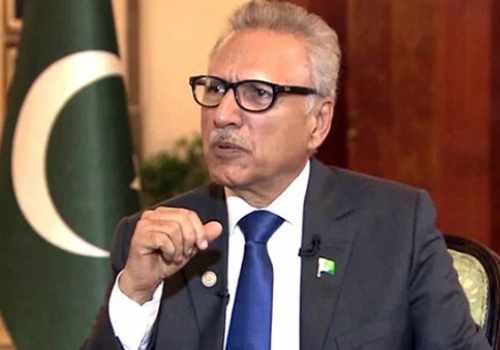ISLAMABAD: President Arif Alvi has returned a bill that limits the chief justice’s discretionary powers to take suo motu notice to parliament for review, citing concerns about its validity.
According to Article 75 of the Constitution, the bill will be reviewed to meet scrutiny about its competence. The president’s letter to Prime Minister Shehbaz Sharif expressed concern that the Supreme Court (Practice and Procedure) Bill, 2023, could be considered colourable legislation and beyond the competence of parliament.
Consideration Required:
The letter highlighted several aspects that, in the president’s opinion, required due consideration. One was that the SC Rules 1980 have been “made and in force duly validated and adopted by the Constitution itself” under enabling provisions such as Article 191 of the Constitution, which empowers the top court to make rules regulating the practice and procedure of the court. The president said that “any tinkering with the same may tantamount to interference with the internal working of the Court, its autonomy and independence.”
The second aspect that the president said needed reconsideration was the separation of powers. He said that our constitution is founded on the concept of trichotomy of power. The three pillars of the state whose domain of power, authority, and functions are defined and delineated by the Constitution itself. The letter emphasized that the competency of the parliament to make laws stems from the Constitution itself.
Independence of the Judiciary :
The president’s letter also observed that the apex court was an independent institution as visualised by the founding fathers that in the state of Pakistan, “independence of the judiciary shall be fully secured.” With such an objective in view, Article 191 was incorporated and the Supreme Court was kept out of the law-making authority of the parliament.
Higher Law:
The letter underscored that the Constitution is not an ordinary law but rather an embodiment of fundamental principles, higher law, and law above other laws. The president asked if such a purpose could be achieved without amending the provisions of relevant articles of the Constitution, while keeping in view that such amendments cannot be made under “an ordinary law as the Constitution is a higher law – father of laws.”
(Islamabad51-Newsdesk)














